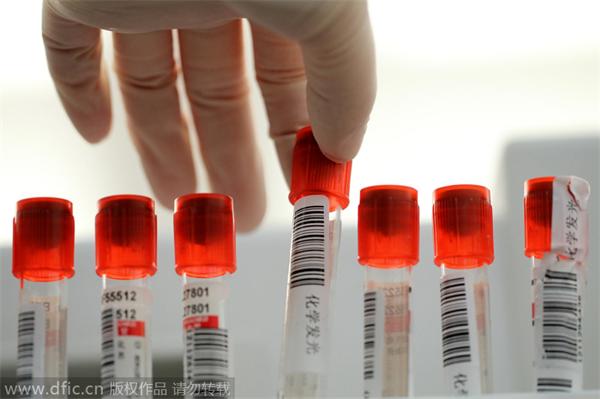|
 |
|
A five-year-old girl was infected with AIDS after she underwent a blood transfusion in Fuzhou, Fujian province. |
A 5-year-old girl from Fujian province nicknamed Maomao became infected with HIV through blood transfusion. This is a serious matter that shows the need for improving blood screening mechanisms in China. The girl was infected during an operation for congenital heart disease in 2010, and tested positive for HIV in September 2014 after she came down with a fever for 17 days.
Blood transfusions are essential to treat excessive blood loss during accidents or as a result of diseases such as hemophilia. If a person receives HIV-infected blood during transfusion, there is a 95 percent risk that he/she will become infected with the virus. The possibility of acquiring HIV from a blood transfusion varies among the countries, and depends on the quality of blood screening procedures and other safety precautions.
Although the risk of contracting HIV through strictly screened blood transfusion is relatively low, the kind of incidents in which Maomao was inflicted indicates the need to improve screening mechanisms for HIV. In the case of Maomao, in addition to the serious medical consequences of the infection, the medical fees for her treatment have spiraled to 300,000 yuan ($48362.91) and placed her family in serious debt.
The provincial health and family planning committee stated that the blood center which supplied the blood and the Fujian Medical University Union Hospital, where the girl underwent the operation, must give “humanitarian compensation” to the child and her family.
Maomao acquired the infection because of limitations of blood screening technology. Although blood donations are tested for contamination, the tests currently used at most blood centers in the country detect antibodies to the virus, whose results are usually available 22 days after the infection. According to health officials, this test will be gradually replaced by the more rapid RNA-based test, which shows results after only 11 days, and will allow cutting transmission of HIV through blood transfusion in half.
A key aspect of ensuring a safe blood supply is the screening and counseling of donors to eliminate HIV-infected people from donating blood. Although testing of blood is essential to avoid transmission of the HIV infection, it is absent or inadequate in many low income countries.

I’ve lived in China for quite a considerable time including my graduate school years, travelled and worked in a few cities and still choose my destination taking into consideration the density of smog or PM2.5 particulate matter in the region.